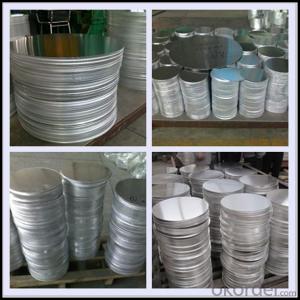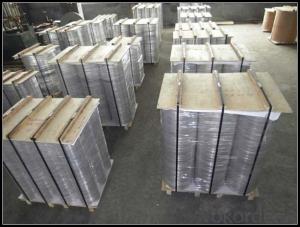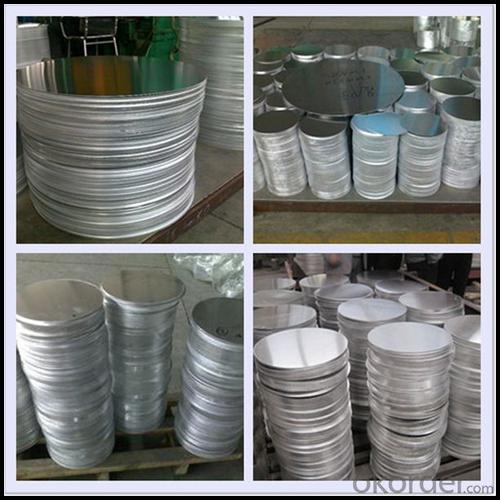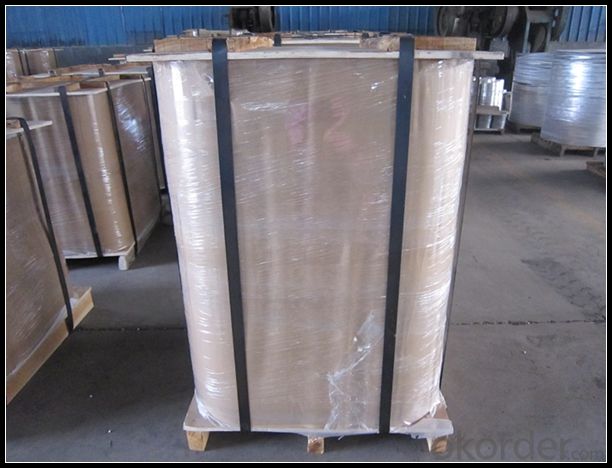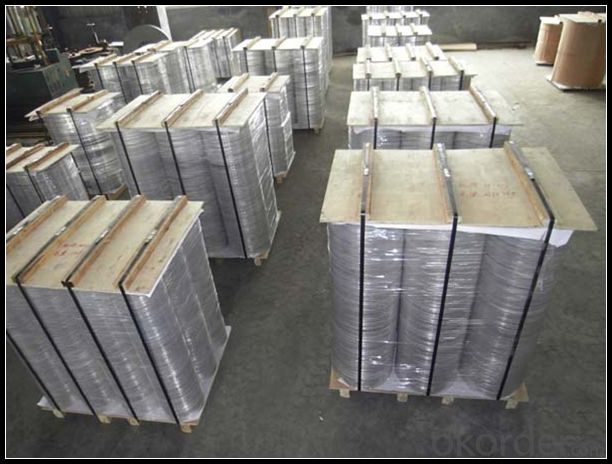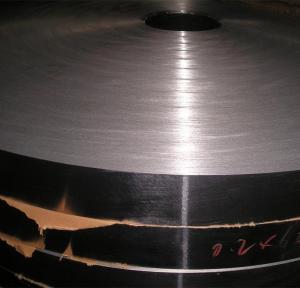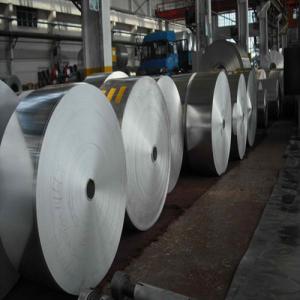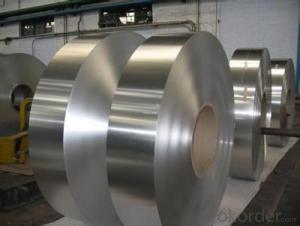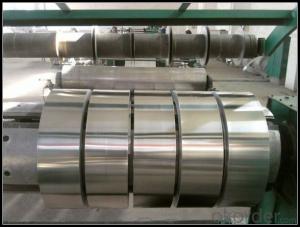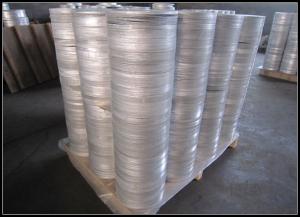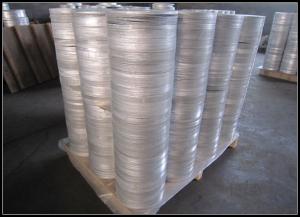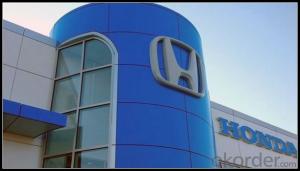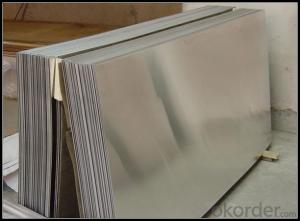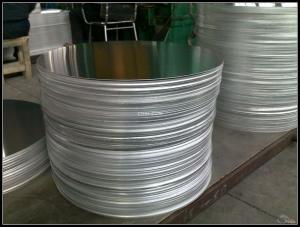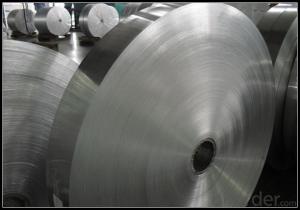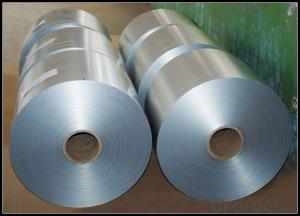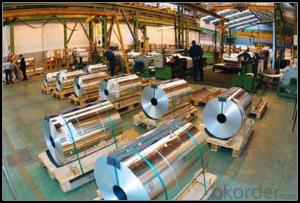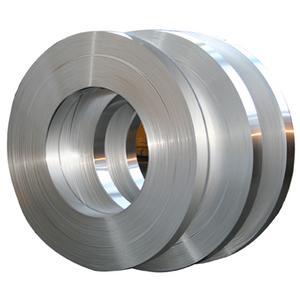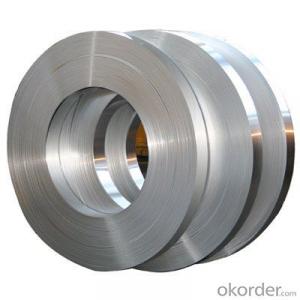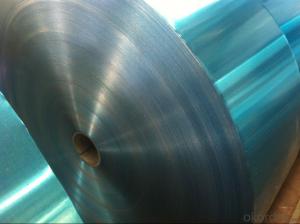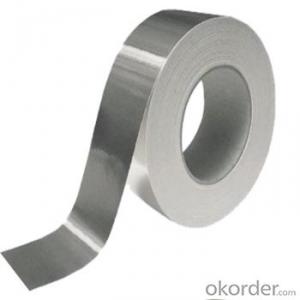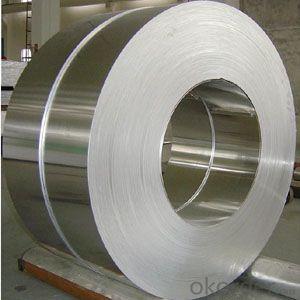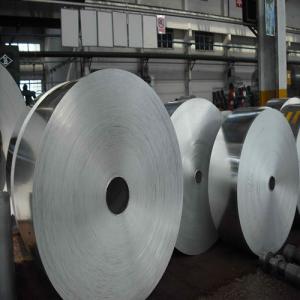Self Adhesive Aluminum Strips - 1060 1145 1050 1100 8011 3003 3004 5052 5083 6061 Aluminum Circles
- Loading Port:
- Tianjin
- Payment Terms:
- TT OR LC
- Min Order Qty:
- 1 m.t.
- Supply Capability:
- 4999 m.t./month
OKorder Service Pledge
OKorder Financial Service
You Might Also Like
Specification
1. Specification of Aluminum
1) Alloy | 1050, 1060,1100, 3003 3004 3105 3005 5005 5052 etc |
2) Temper | O/H12/H14/H1/H18/H32/H34/H36/H38//H111/H112/H116/H321/T6/T651/T3/T351 etc |
3) Thickness | 0.1mm to 6mm |
4) Width | 20mm to 3300mm |
5) Coil weight | 100kgs to 6 tons depends on actual requirement |
6) Core material | Aluminum alloy |
7) Coil Inner diameter | 76mm, 152mm,or as required |
2. Application of Aluminum
(1).Alumina
(2).Sulfates
(3).Niche compounds....
3. Feature of Aluminum
Henri Etienne Sainte-Claire Deville improved Wöhler's method in 1846. As described in his 1859 book, aluminium trichloride could be reduced by sodium, which was more convenient and less expensive than potassium used by Wöhler.[64] In the mid-1880s, aluminium metal was exceedingly difficult to produce, which made pure aluminium more valuable than gold.[65] So celebrated was the metal that bars of aluminium were exhibited at the Exposition Universelle of 1855.
Be free from Oil Stain, Dent, Inclusion, Scratches, Stain, Oxide Dicoloration, Breaks, Corrosion, Roll Marks, Dirt Streaks and other defect which will interfere with use
4. Certificate:
SGS and ROHS(if client request, paid by client), MTC(plant provided), Certificate of Origin(FORM A, FORM E, CO), Bureau Veritas and SGS (if client request, paid by client), CIQS certificate
5. Image of Aluminum
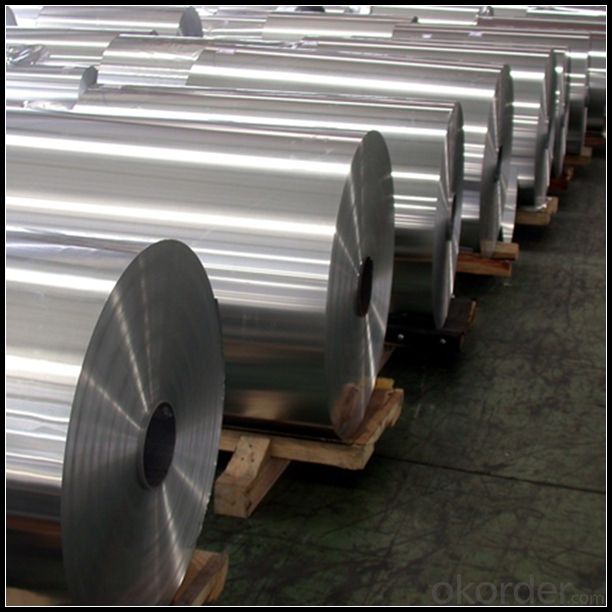
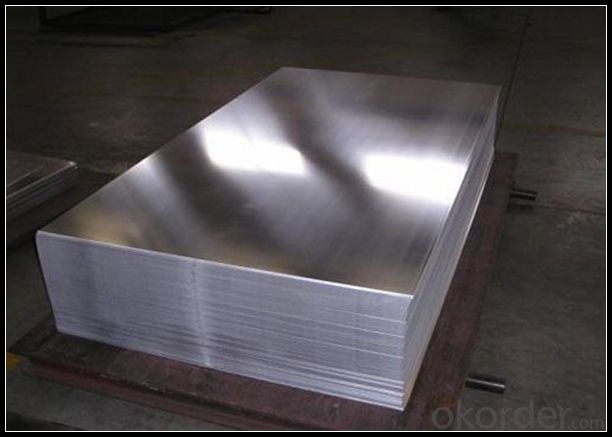
6. Our Service
1. Reply your enquiry in 24 working hours. |
2. OEM, buyer design, buyer label services provided. |
3. Exclusive and unique solution can be provide to our customer by our well traned and professional engineers and staffs. |
4. We can provide free sample for your check |
5. We have the certification of ISO 9001 |
6. Timely delivery |
7. Special discount and protection of sales area provided to our distributor. |
8. Good after-sale service. |
7. FAQ
Q: What is the produce prase? | ||||
A: Normally it would be 40days after received your deposit. | ||||
Q: Can you provide free samples? | ||||
A: Yes, free samples will be sent to you on freight at destination. | ||||
Q: Can I get your latest catalogue? | ||||
A: Yes, it will be sent to you in no time. | ||||
Q: What is the MOQ? | ||||
A: 3 tons | ||||
Q: What are your payment terms? | ||||
A: We accept L/C, D/A, D/P, T/T, West Union,etc. |
- Q: How to distinguish between good and bad aluminum bands?
- Compare the flexibility and strength of aluminium pinch plateThe differential method is simple: take a piece of aluminum buckle, with his hand he bent aluminum buckle not good will easily be bent, and will not return to its original shape, and good bending to aluminum buckle requires effort, and after bending, will rebound to a certain extent, the difference between the strength and toughness this is the aluminum. After the installation of a good aluminum pinch plate, there will be no bending or middle fall.
- Q: This question asks about the various forms or configurations that aluminum strips can take in terms of their shape.
- <p>Aluminum strips are available in various shapes to meet different industrial and manufacturing needs. Common shapes include rectangular, square, and circular strips. Rectangular strips are the most common and can be found in various thicknesses and widths. Square strips are less common but still used in specific applications. Circular strips, also known as aluminum wire, are used in electrical applications and other areas requiring a round cross-section. Other shapes like triangular, hexagonal, or custom profiles can also be produced but are less standard and typically require specialized manufacturing processes.</p>
- Q: What types of aluminum strips are known for their durability and longevity?
- <p>Yes, there are several types of aluminum strips known for their durability and longevity. These include 3003-H14, 5052-H32, and 6061-T6 aluminum alloys. 3003-H14 is known for its excellent corrosion resistance and formability, making it ideal for applications requiring high durability. 5052-H32 offers good strength, corrosion resistance, and weldability, suitable for marine and structural applications. 6061-T6 is valued for its high strength-to-weight ratio and is commonly used in aerospace and automotive industries where long-lasting performance is crucial. Proper surface treatments and coatings can further enhance the durability and longevity of aluminum strips.</p>
- Q: Is it possible to use aluminum strips as a material for flooring?
- <p>Aluminum strips can indeed be used for flooring, particularly in industrial or commercial settings where durability and resistance to wear are important. They are known for their strength, low maintenance, and resistance to corrosion. Aluminum strips are often used in modular flooring systems, providing a sleek and modern appearance. However, they may not be as common or suitable for residential applications due to concerns about thermal conductivity, noise, and the potential for a cold, hard feel underfoot.</p>
- Q: What's the specialty of aluminum strip rolling?
- Now, metal pressure processing profession, undergraduate course is called material forming and control major, master and doctor stage is called material processing engineering.
- Q: Is it possible to substitute aluminum strips with other metal sheets in construction projects?
- <p>Yes, you can use different types of metal sheets in place of aluminum strips in your construction projects, depending on the specific requirements. Metals like steel, stainless steel, and copper can be used as alternatives. Each metal has unique properties such as strength, weight, corrosion resistance, and thermal conductivity, which can affect the project's performance and longevity. It's crucial to consider the environmental conditions, load-bearing requirements, and cost implications when choosing an alternative to aluminum. Always consult with a structural engineer or a material expert to ensure the chosen metal meets the project's needs.</p>
- Q: What types of aluminum alloys are known for their higher resistance to corrosion compared to other aluminum types?
- <p>Yes, certain types of aluminum alloys exhibit greater resistance to corrosion. These include 3003, 5052, and 5083 aluminum alloys, which contain magnesium and manganese, enhancing their corrosion resistance. Additionally, 6061 aluminum, which contains magnesium and silicon, is known for its good resistance to atmospheric corrosion. These alloys are often used in marine environments and other corrosive conditions due to their superior corrosion resistance.</p>
- Q: Is it appropriate to use aluminum strips for constructing outdoor furniture?
- <p>Yes, you can use aluminum strips for outdoor furniture. Aluminum is a popular choice due to its durability, resistance to corrosion, and low maintenance requirements. It doesn't rust and can withstand various weather conditions, making it suitable for outdoor use. However, ensure that the aluminum is of high quality and treated to resist UV rays and other environmental factors to prolong its lifespan and maintain its appearance.</p>
- Q: Explain the distinctions between standard and custom aluminum products.
- <p>Standard aluminum products are mass-produced items with fixed specifications and designs, readily available in the market. They are cost-effective and quick to acquire but may lack specific features needed for unique applications. Custom-made aluminum products, on the other hand, are tailored to meet specific client requirements. They involve a design and manufacturing process that aligns with the client's exact needs, often resulting in a product with unique dimensions, finishes, or functionalities. This customization can lead to higher costs and longer lead times but ensures the product fits the intended application perfectly.</p>
- Q: Is it possible to utilize aluminum strips as decorative elements within a home?
- <p>Yes, you can use aluminum strips to make decorative accents for your home. Aluminum is a versatile material that is lightweight, durable, and resistant to corrosion. It can be used to create modern and sleek accents, such as trims, wall art, or even furniture accents. Due to its malleability, aluminum can be shaped into various designs and finishes, allowing for a wide range of decorative possibilities. Ensure that the aluminum strips are properly secured and finished to prevent any sharp edges and to maintain a polished look.</p>
Send your message to us
Self Adhesive Aluminum Strips - 1060 1145 1050 1100 8011 3003 3004 5052 5083 6061 Aluminum Circles
- Loading Port:
- Tianjin
- Payment Terms:
- TT OR LC
- Min Order Qty:
- 1 m.t.
- Supply Capability:
- 4999 m.t./month
OKorder Service Pledge
OKorder Financial Service
Similar products
Hot products
Hot Searches
Related keywords
